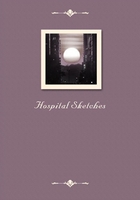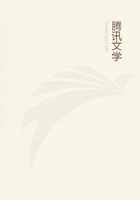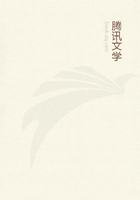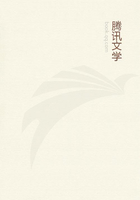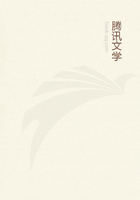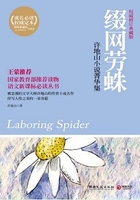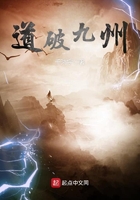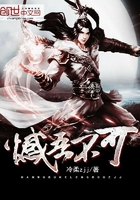THERE are waste places of the earth which fill one with terror--not simply because they are waste; one has not such feelings in the desert nor in the vast solitude of the ocean. Very different is it where the desolation has overtaken a brilliant and flourishing product of man's head and hand. To know that . . . the Lion and the Lizard keep The Courts where Jamshyd gloried and drank deep sends a chill to the heart, and one trembles with a sense of human instability. With this feeling we enter the Middle Ages.
Following the glory that was Greece and the grandeur that was Rome, a desolation came upon the civilized world, in which the light of learning burned low, flickering almost to extinction.
How came it possible that the gifts of Athens and of Alexandria were deliberately thrown away? For three causes. The barbarians shattered the Roman Empire to its foundations. When Alaric entered Rome in 410 A. D., ghastly was the impression made on the contemporaries; the Roman world shuddered in a titanic spasm (Lindner). The land was a garden of Eden before them, behind a howling wilderness, as is so graphically told in Gibbon's great history. Many of the most important centres of learning were destroyed, and for centuries Minerva and Apollo forsook the haunts of men. The other equally important cause was the change wrought by Christianity. The brotherhood of man, the care of the body, the gospel of practical virtues formed the essence of the teaching of the Founder--in these the Kingdom of Heaven was to be sought; in these lay salvation. But the world was very evil, all thought that the times were waxing late, and into men's minds entered as never before a conviction of the importance of the four last things--death, judgment, heaven and hell. One obstacle alone stood between man and his redemption, the vile body, "this muddy vesture of decay," that so grossly wrapped his soul. To find methods of bringing it into subjection was the task of the Christian Church for centuries. In the Vatican Gallery of Inscriptions is a stone slab with the single word "Stercoriae," and below, the Christian symbol. It might serve as a motto for the Middle Ages, during which, to quote St. Paul, all things were "counted dung but to win Christ." In this attitude of mind the wisdom of the Greeks was not simply foolishness, but a stumbling-block in the path. Knowledge other than that which made a man "wise unto salvation" was useless. All that was necessary was contained in the Bible or taught by the Church. This simple creed brought consolation to thousands and illumined the lives of some of the noblest of men. But, "in seeking a heavenly home man lost his bearings upon earth." Let me commend for your reading Taylor's "Mediaeval Mind."[1] I cannot judge of its scholarship, which I am told by scholars is ripe and good, but I can judge of its usefulness for anyone who wishes to know the story of the mind of man in Europe at this period. Into the content of mediaeval thought only a mystic can enter with full sympathy. It was a needful change in the evolution of the race. Christianity brought new ideals and new motives into the lives of men. The world's desire was changed, a desire for the Kingdom of Heaven, in the search for which the lust of the flesh, the lust of the eye and the pride of life were as dross. A master-motive swayed the minds of sinful men and a zeal to save other souls occupied the moments not devoted to the perfection of their own. The new dispensation made any other superfluous. As Tertullian said:
Investigation since the Gospel is no longer necessary.
(Dannemann, Die Naturw., I, p. 214.) The attitude of the early Fathers toward the body is well expressed by Jerome. "Does your skin roughen without baths? Who is once washed in the blood of Christ needs not wash again." In this unfavorable medium for its growth, science was simply disregarded, not in any hostile spirit, but as unnecessary.[2] And a third contributing factor was the plague of the sixth century, which desolated the whole Roman world. On the top of the grand mausoleum of Hadrian, visitors at Rome see the figure of a gilded angel with a drawn sword, from which the present name of the Castle of St. Angelo takes its origin. On the twenty-fifth of April, 590, there set out from the Church of SS. Cosmas and Damian, already the Roman patron saints of medicine, a vast procession, led by St. Gregory the Great, chanting a seven-fold litany of intercession against the plague. The legend relates that Gregory saw on the top of Hadrian's tomb an angel with a drawn sword, which he sheathed as the plague abated.
[1] H. O. Taylor: The Mediaeval Mind, 2 vols., Macmillan Co., New York, 1911. [New edition, 1920.]
[2] Ibid., Vol. 1, p. 13: "Under their action [the Christian Fathers] the peoples of Western Europe, from the eighth to the thirteenth century, passed through a homogeneous growth, and evolved a spirit different from that of any other period of history--a spirit which stood in awe before its monitors divine and human, and deemed that knowledge was to be drawn from the storehouse of the past; which seemed to rely on everything except its sin-crushed self, and trusted everything except its senses; which in the actual looked for the ideal, in the concrete saw the symbol, in the earthly Church beheld the heavenly, and in fleshly joys discerned the devil's lures; which lived in the unreconciled opposition between the lust and vain-glory of earth and the attainment of salvation; which felt life's terror and its pitifulness, and its eternal hope; around which waved concrete infinitudes, and over which flamed the terror of darkness and the Judgment Day."

